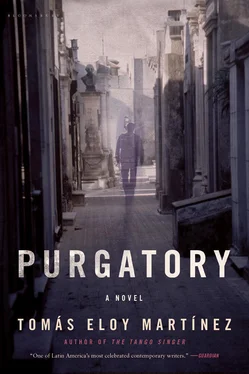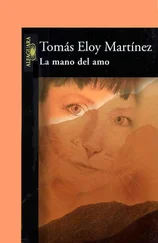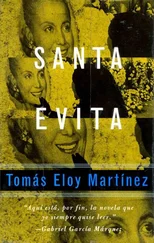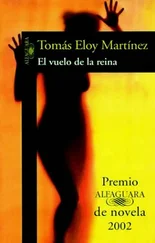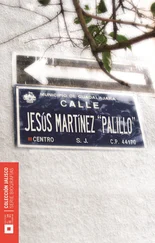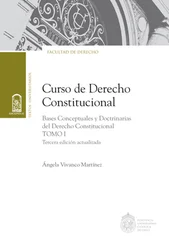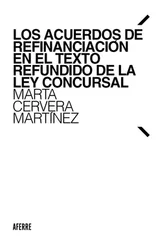As we pulled into North 4th Avenue, we saw Large Lenny weaving from one sidewalk to the other carrying thick red candles that were burning his hands as they melted. He seemed insensible to the pain, staring at some fixed point in the middle distance. But however disconnected he was from the world, something had made him cry. Tears spilled silently from his eyes and followed a roundabout course to drip from his jaw. A gang of kids was following him, firing pebbles at him with elastic bands. Emilia couldn’t bear it.
‘Leave him alone,’ she shouted. ‘Can’t you see he’s crying?’
‘I’m not crying,’ the giant corrected her. ‘I forgive them, for they know not what they do.’
‘Are you OK, Lenny?’ Emilia comforted him. ‘You want me to take you home?’
The question was ridiculous, no one knew where Large Lenny lived. Everyone assumed one of the local synagogues gave him shelter, but it was impossible to know which since he visited all of them.
‘I thirst,’ he answered.
We had arrived at the door to Emilia’s house and she went upstairs to her apartment to get him a bottle of cold water. A couple of neighbours were peering out of their windows. In the distance, I heard the announcer’s voice from the sports field. Some high-school students were playing a match.
‘Blow out those candles, Lenny,’ I said. ‘You’re burning your hands.’
‘They have to be lit. For the res’rection.’
When Emilia brought the water, the giant set the candles down on the porch and drank straight from the bottle, the water coursing noisily down his cavernous throat.
‘Large Lenny thinks someone’s come back to life,’ the downstairs neighbour informed Emilia. The guy gave a little laugh, and from some nearby balconies came a chorus of jeers.
‘Who’s the dead guy? Him?’
‘I am no longer of this world,’ said the giant. ‘Someone who was lost is coming back to the world and if these candles don’t show him the light he won’t find his way.’
‘Where is this person?’ Emilia asked, going along with his train of thought. ‘So we can help them. ’
‘You don’t need to, that’s what I’m saying. You should know that better than me.’
Large Lenny handed back the empty bottle and headed off towards Main Street still shouting verses from the Gospel according to Luke, but I was no longer listening. I went home.
When they got back from their honeymoon, Simón and Emilia thought they were Parmenides’ ‘One Being, eternal’, a being that would never move from itself into the past or towards anything else; things are never as we expect them to be, things are not even as they appear.
The taxi driver who picked them up at the airport told them that Ringo Bonavena had been murdered outside a brothel in Reno, Nevada, the week before. The flat-footed boxer with the rippling muscles and a voice like a little girl’s had been killed by a single shot to the chest. Ringo would never again sing ‘Pajarito pío pío’. ‘He was killed by a gangster,’ the driver told them. ‘Imagine it: the eighteen-stone brick shithouse who KO’d Ron Hicks in the first minute, the guy who held out fifteen rounds against Cassius Clay, died because of some dumb argument with a bodyguard in some two-bit whorehouse, excuse my language, señora. They flew his body back last Friday. You wouldn’t believe the number of people lined up to see him. Yesterday there was thousands of guys standing in the rain.’
At 9.30 a.m. the air seemed dirty, thick with fog and smelling of disinfectant. The car inched down the avenida del Libertador towards the San Telmo apartment which was as unfamiliar, as impersonal to Emilia and Simón as a hotel room. They had been so taken with the apartment when they had viewed it, with the balconies overlooking the Parque Lezama, that Dr Dupuy had bought it for them as a wedding present, and insisted they should not move in until it had been completely redecorated and furnished. Emilia’s mother picked the paint colours for the walls, the dining set, the bedroom curtains, the carpets, the crockery and the cutlery. Simón had insisted that they at least be allowed to bring the drawing tables, the encyclopedias and the cartography manuals they had had when they were still single, so some part of their identity would be preserved.
The redecoration had taken longer than expected, forcing them to spend a month in Punta del Este after their long cruise back from Recife. They arrived exhausted but excited. It was Sunday and there was something melancholy about the light in Buenos Aires. Ringo Bonavena’s body had been flown home so that he might be added to the list of national saints, a pantheon which already included Gardel, Perón and Evita. The streets around the Plaza Roma were crowded with parked cars from the funeral cortège, all decked out in black crape and floral wreaths. As they passed Luna Park, they were overtaken at top speed by a Mercedes-Benz with tinted windows which jumped the traffic lights. Emilia recognised it as her father’s car and told the driver to park wherever he could find a space in the fleet of funeral cars. She wanted to surprise her father; what she could not know was that it was she who would be surprised, because Dr Dupuy stepped into Luna Park Stadium with his arm around the waist of a woman who — from behind at least — looked young and glitzy. Simón reluctantly got out of the car; he did not want their return in Buenos Aires ruined by an ugly scene between father and daughter, but, as she told the story thirty years later, Emilia had known exactly what she was doing. Nothing, she believed, not even shame, could perturb her father.
When the stadium doors were opened, all eyes turned to the catafalque which now occupied the area at the foot of the empty bleachers where the boxing ring had been. The coffin was lit by four church candles, the kind that stream wax, and by the red and green glow of garish spotlights. Bonavena’s mater dolorosa gently stroked the face of the son who looked so much like her, as though touching her own death. In a timeless mirror, events continued to repeat themselves. A television presenter knelt before the mother, took her hands and kissed them. Hadn’t they seen this scene before on Telenoche or Videoshow ? Everything was the same and yet everything was different, as though events had been rewound to be played out again. So the crowds of onlookers lining the streets to watch Bonavena’s cortège pass waited with the same impatience they had twenty-five years earlier when they had waited for Evita’s coffin, but this time there could be no miracle: though the events were the same, in shifting from one era to another they were recreated in a new form.
Dr Dupuy stood before the coffin for a moment and, turning, found himself face to face with his daughter. Emilia didn’t recognise the woman on his arm, but Simón recognised her immediately. He had read an article in a doctor’s waiting room describing her as a woman who collected powerful lovers, a writer of romantic novels that sold in their thousands though no one knew anyone who actually bought them.
‘This is Nora Balmaceda,’ Dr Dupuy introduced her. This, they knew, was the end of their honeymoon.
They didn’t have time to say anything because just at that moment the undertakers set about sealing the zinc coffin with blowtorches and Ringo’s mother fainted. ‘That’s the sixth time,’ Emilia informed Señora Balmaceda; she had heard about the previous five fainting spells on the morning news. ‘But I didn’t tell her that until afterwards,’ Emilia recalled in Highland Park, ‘because the minute she saw that grieving lump of lard collapse, Nora Balmaceda rushed over to help her.’ She managed to put her arms around her just as the paparazzi — at Dr Dupuy’s signal — froze the scene with their cameras. The picture made the front page of the late editions, printed as big as the photo of the cortège at the intersection of the avenida de Mayo and the Nueve de Julio. Even the caption — ‘A mother and a writer united in grief’ — had been dictated by Dupuy.
Читать дальше
